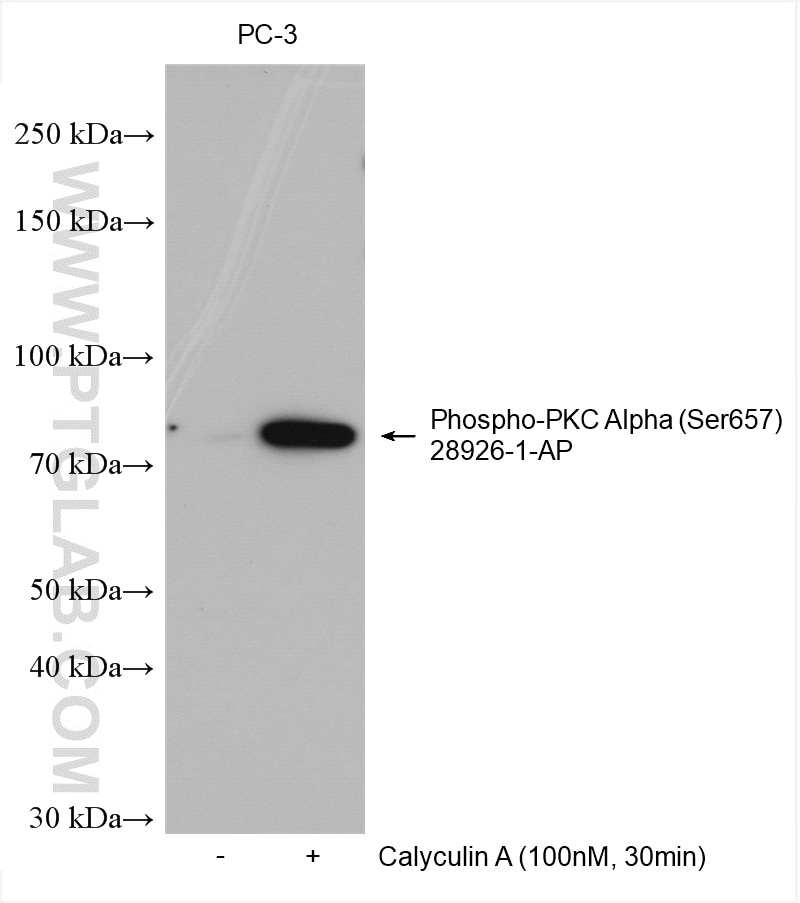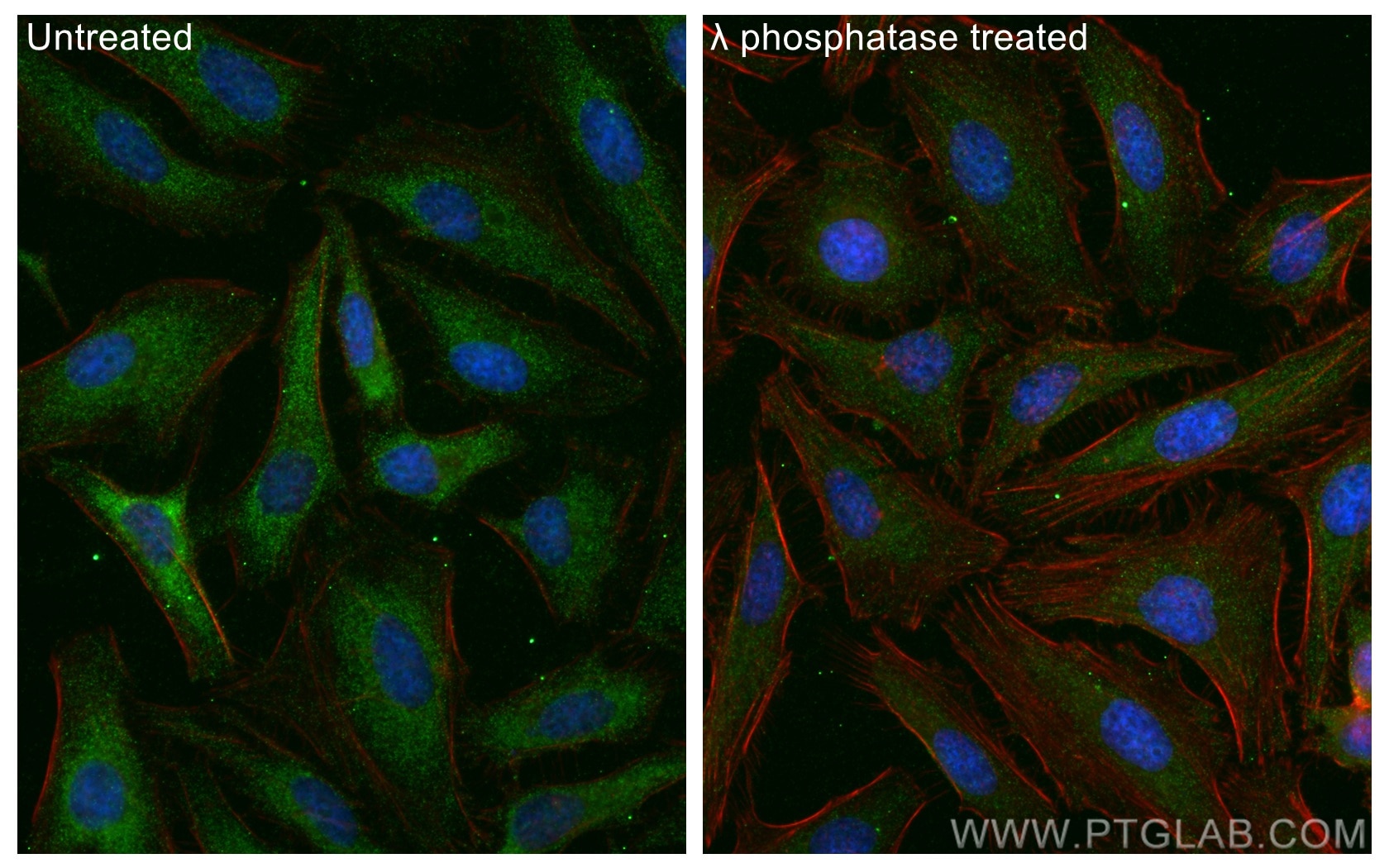Anticorps Polyclonal de lapin anti-Phospho-PKC Alpha (Ser657)
Phospho-PKC Alpha (Ser657) Polyclonal Antibody for WB, IF/ICC, ELISA
Hôte / Isotype
Lapin / IgG
Réactivité testée
Humain et plus (1)
Applications
WB, IF/ICC, ELISA
Conjugaison
Non conjugué
N° de cat : 28926-1-AP
Synonymes
Galerie de données de validation
Applications testées
| Résultats positifs en WB | cellules PC-3 traitées à la calyculine A, |
| Résultats positifs en IF/ICC | cellules HeLa traitées à la λ phosphatase, |
Dilution recommandée
| Application | Dilution |
|---|---|
| Western Blot (WB) | WB : 1:500-1:3000 |
| Immunofluorescence (IF)/ICC | IF/ICC : 1:200-1:800 |
| It is recommended that this reagent should be titrated in each testing system to obtain optimal results. | |
| Sample-dependent, check data in validation data gallery | |
Applications publiées
| WB | See 3 publications below |
Informations sur le produit
28926-1-AP cible Phospho-PKC Alpha (Ser657) dans les applications de WB, IF/ICC, ELISA et montre une réactivité avec des échantillons Humain
| Réactivité | Humain |
| Réactivité citée | Humain, souris |
| Hôte / Isotype | Lapin / IgG |
| Clonalité | Polyclonal |
| Type | Anticorps |
| Immunogène | Peptide |
| Nom complet | protein kinase C, alpha |
| Masse moléculaire calculée | 77 kDa |
| Poids moléculaire observé | 77 kDa |
| Numéro d’acquisition GenBank | AK055431 |
| Symbole du gène | PKC Alpha |
| Identification du gène (NCBI) | 5578 |
| Conjugaison | Non conjugué |
| Forme | Liquide |
| Méthode de purification | Purification par affinité contre l'antigène |
| Tampon de stockage | PBS with 0.02% sodium azide and 50% glycerol |
| Conditions de stockage | Stocker à -20°C. Stable pendant un an après l'expédition. L'aliquotage n'est pas nécessaire pour le stockage à -20oC Les 20ul contiennent 0,1% de BSA. |
Informations générales
PKCs are a family of serine/threonine kinases involved in various processes in cells including proliferation, differentiation, cell survival, and apoptosis. PKC family is composed of three different subgroups: conventional (cPKC), the novel (nPKC) and atypical (aPKC). PKCα, β1, β2, and γ belong to cPKC, PKCδ, ε, η and θ are nPKC, whereas aPKC comprises of PKCζ and λ/ι. All PKCs consist of the N-terminal regulatory region and C-terminal catalytic region (kinase domain). PKCs are physiologically activated by various extracellular signals transduced by hormones, growth factors, cytokines or antigens. The presence of activated PKCs on internal membranes leads to the phosphorylation of various interacting proteins. (PMID: 32466765, PMID: 12417016)
Protocole
| Product Specific Protocols | |
|---|---|
| WB protocol for Phospho-PKC Alpha (Ser657) antibody 28926-1-AP | Download protocol |
| IF protocol for Phospho-PKC Alpha (Ser657) antibody 28926-1-AP | Download protocol |
| Standard Protocols | |
|---|---|
| Click here to view our Standard Protocols |
Publications
| Species | Application | Title |
|---|---|---|
Cell Death Dis Neurokinin-1 receptor drives PKCɑ-AURKA/N-Myc signaling to facilitate the neuroendocrine progression of prostate cancer | ||
Appl Biochem Biotechnol Sphincter of Oddi Dysfunction Induces Gallstone by Inhibiting the Expression of ABCB11 via PKC-α | ||
Apoptosis The resistance to anoikis, mediated by Spp1, and the evasion of immune surveillance facilitate the invasion and metastasis of hepatocellular carcinoma |



